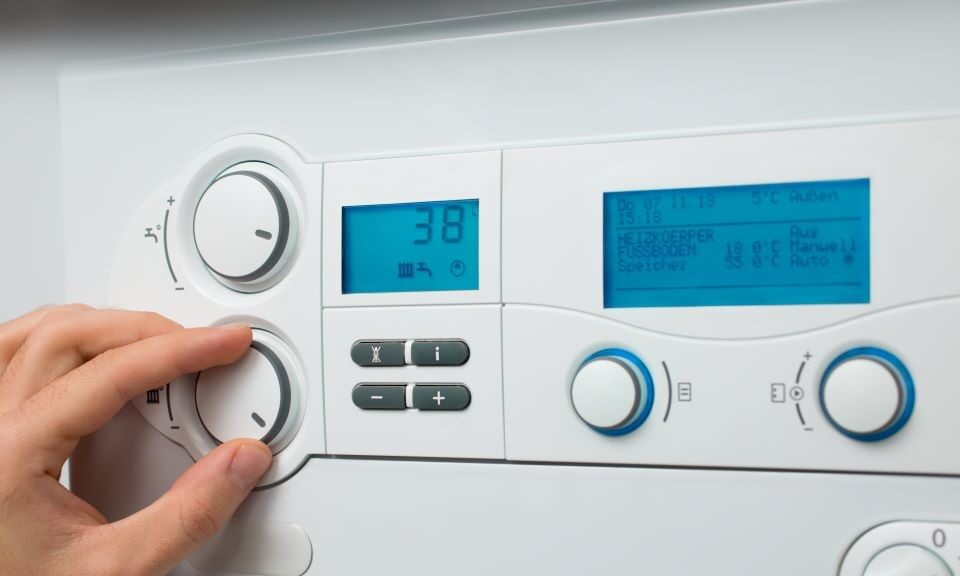
Understanding Boiler Efficiency Ratings and Their Importance to the User

Are Zero Emission Boilers the Future for UK Homeowners?
As the summer months faded away and the colder weather approaches, it’s essential to ensure that your boiler is in top shape to handle the increased workload during a British winter, certainly when a sudden cold snap descends upon us!
Most home boilers may have enjoyed a bit of a break during the warmer season, other than heating water for your showers or baths. However, come the cooler months in September and October it becomes time to shift your boiler’s focus to keeping you and your home warm and cosy during the winter months. To help you prepare, we’ve got our Suffolk heating engineers to compile a list of seven crucial checks and maintenance steps to get your boiler ready and then keep it running during a British winter.
Do a Test Turn on
It might sound simple, but performing a test turn-on of your heating system before the winter chill sets in is a really smart move. This allows you to assess your boiler’s functionality while it’s still relatively warm outside. This initial test can help identify any potential issues before they become more significant problems during the colder months. Trust us, its usually easier to engage the services of a heating engineer in August than it is in the middle of Winter!
Older boilers may struggle to meet the increased heating demands of your home in a colder climate, certainly if they’ve been on a lazy standby over the summer.
You won’t need to turn the boiler on for long, around 15 to 30 minutes should do it. You can then check the boiler is working, that no boiler fault codes are showing up, that boiler pressures are correct and your radiators are uniformly heating up around your house.
Insulate Your Pipes
If possible, consider insulating your boiler’s pipe system – especially if the boiler is in your garage or cold location in your home (you might want to move your boiler if it’s possible). Proper insulation helps maintain a consistent temperature in the pipes, preventing them from freezing during extreme cold spells. Frozen pipes can lead to boiler failures, so insulating them before winter is a preventive measure that can save you from costly repairs and sitting around in the cold later on waiting for a heating engineer to show up!
Check your Radiators
When your heating system is running, touch your radiators (take care they may be VERY hot!). If you notice that they are cold toward the bottom, it may indicate trapped air within the radiator. Bleeding your radiator should resolve this issue. However, if the problem persists, it might be a sign of sludge buildup, which can seriously hinder your heating system’s performance. In such cases, consider power flushing or cleaning the radiator to restore its performance.
Check your Boiler Pressure
Most boilers come equipped with a pressure gauge. A quick check can tell you if the pressure is within the recommended range, typically between 1 and 1.5 bars. Low pressure can negatively affect the distribution of hot water in your heating system, while high pressure can cause problems as well. If your boiler’s pressure is not within the optimal range, follow the manufacturer’s guidelines for adjustments or ideally seek professional assistance from experienced heating engineers.
Check for Thermostat Faults
A responsive thermostat is essential for maintaining a comfortable indoor temperature. If you suspect any issues with your thermostat, start by replacing its batteries. If the problem persists, it’s advisable to contact a boiler technician to inspect and repair any faults.
Keep Your Boiler Clean
Sometimes, all your boiler needs is a thorough cleaning to remove dirt and debris that may be hindering its efficiency. Be sure to clean your boiler following the manufacturer’s guidelines and with safety precautions in mind. If you’re not sure, then see the next section below and ask the engineer to give it a clean when they’re over to service your boiler.
Arrange an Annual Service
Lastly and perhaps most importantly, schedule an annual boiler service – it’s something many people fail to do on a yearly basis. Leaving a boiler un-serviced for years is asking for trouble and in extreme cases it may even require a brand-new boiler to be fitted.
Professional boiler engineers can help to detect and address issues that may not be apparent to you in your daily life. An annual service ensures that your boiler is not only in good working order but is also Gas Safe, safeguarding the health and safety of your household. If you suspect any problems before your annual service is due, don’t hesitate to call for assistance from a Gas Safe accredited heating company.
Conclusion
Getting your boiler ready and keeping it running during the colder months is a vital task for homeowners. By following these seven steps, you can ensure that your boiler operates efficiently and reliably throughout a British winter, keeping your home warm and comfortable. Don’t overlook the importance of regular maintenance and professional servicing; they can save you from unexpected boiler breakdowns and more costly repairs in the long run.





